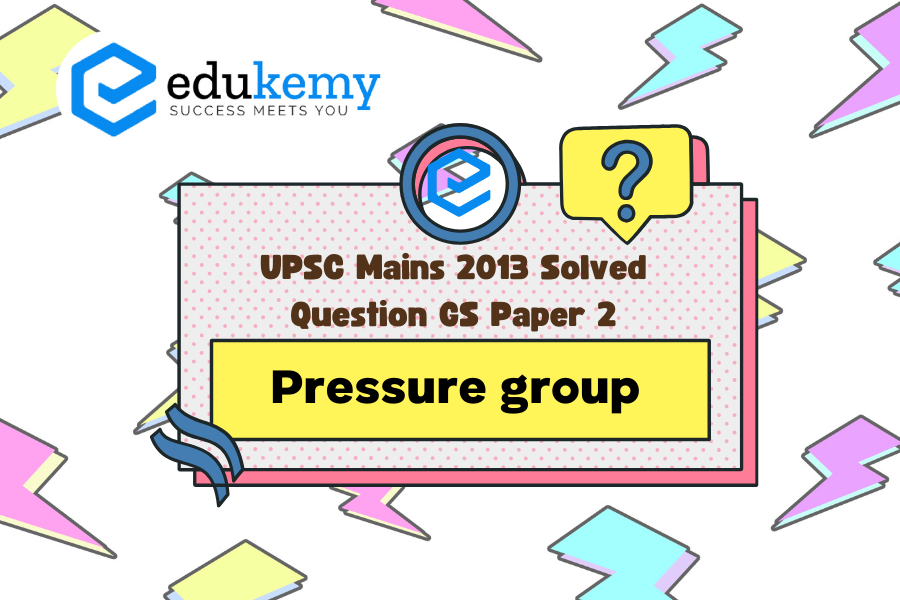Pressure group politics in India can indeed be perceived as the informal facet of the political landscape, exerting significant influence on policymaking and decision-making processes. Structurally diverse, pressure groups in India encompass a wide array of organizations, ranging from business associations and labor unions to environmental advocacy groups and ethnic associations. These groups operate with varying degrees of formality, some possessing well-defined hierarchies and institutional frameworks, while others rely on grassroots mobilization and decentralized networks.
Functionally, pressure groups in India employ various strategies to advance their interests and agendas. Direct lobbying of policymakers, public demonstrations, media campaigns, and legal advocacy are common tactics employed by these groups. Furthermore, many pressure groups actively engage in electoral politics, endorsing candidates sympathetic to their causes and mobilizing voter support.
However, the functioning of pressure groups in India is not without challenges. Issues such as elite capture, lack of transparency, and unequal access to decision-makers often plague these organizations, raising concerns about their representativeness and democratic legitimacy.
Tag: Governance; The role of various groups and associations
Contents
Decoding the Question.
- In Introduction, try to briefly write about Pressure groups.
- In Body,
- Mention how pressure groups function and their importance.
- Also, write various issues with such groups.
- In Conclusion, write the overall significance of pressure groups.
Answer:
As organizations that aim to raise awareness, spark debate, and galvanize support for particular causes, pressure groups provide an essential function in a democratic society.
Protests, dharnas, strikes, public gatherings, memoranda to legislative committees, media campaigns, and the cultivation of public opinion are among political strategies that pressure organizations employ to advance their goals.

The structure and functioning of pressure groups in India:
- They broaden people’s horizons, encourage them to take part in political processes, and provide a platform for the expression of many different lobbying organizations in India. For example Association for Democratic Reforms and People’s Union for Civil Liberties
- Various lobbying groups exist, some of which are rooted in long- established social norms. Anglo-Indian Christian Association, Parsee Anjuman, Sanatan Dharma Sabha, and Arya Pratinidhi Sabha are just a few examples.
- There are organizations based on language and caste, such as the Tamil Sangh and the Anjuman-e-Taraqqi-eUrdu, and on ethnicity, such as the Brahmin Sabha and the Nair Society.
- The All India Trade Union Congress, the Bharatiya Mazdoor Sangh, the Kisan Sabha, , as well as the Associated Chambers of Commerce and Industry of India and the Federation of Indian Chambers of Commerce and Industry (FICCI), play significant roles in Indian Economy and politics.
- The government’s policies regarding the rights of women workers have been improved thanks to the efforts of the Self-Employed Women’s Association (SEWA).
- Mazdoor Kisan Shakti Sangathan spearheaded the populist campaign that resulted in the passage of the Right to Information Act by the government.
- Naz Foundation, Bachpan Bachao Andolan work for vulnerable section of society
Limitations/Challenges of the Pressure Groups:
- These groups suffer from issues like, lack of effective leadership and autonomous existence and unstable structure.
- These often indulge in mass violence, use Unconstitutional methods, focus on parochial interests, etc. which may create serious threat to democratic set up.
In the complexities of modern government, and the pluralistic nature of society, pressure groups play a vital role and provide a means by which ordinary citizens can participate in the decision-making process, as well as maintaining a check on government activity. These are an indispensable and helpful element of the Indian political system.
In case you still have your doubts, contact us on 9811333901.
For UPSC Prelims Resources, Click here
For Daily Updates and Study Material:
Join our Telegram Channel – Edukemy for IAS
- 1. Learn through Videos – here
- 2. Be Exam Ready by Practicing Daily MCQs – here
- 3. Daily Newsletter – Get all your Current Affairs Covered – here
- 4. Mains Answer Writing Practice – here


